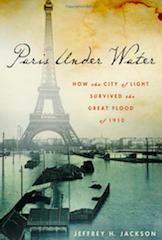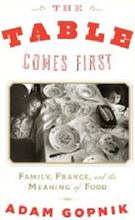France News: G20 Summit in Cannes, Charlie Hebdo, Marine Le Pen
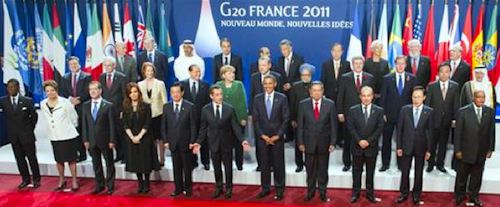
- SUBSCRIBE
- ALREADY SUBSCRIBED?
BECOME A BONJOUR PARIS MEMBER
Gain full access to our collection of over 5,000 articles and bring the City of Light into your life. Just 60 USD per year.
Find out why you should become a member here.
Sign in
Fill in your credentials below.
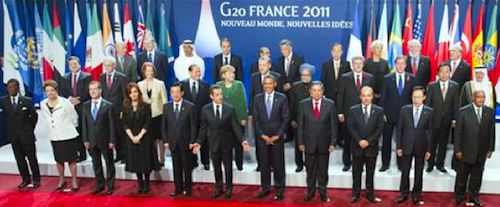
G20 summit in Cannes
By far the most newsworthy event this past week was the two-day G20 meeting that wrapped on Friday in Cannes, where world leaders gathered originally to discuss far-reaching areas on the economy and finance. But discussion—and nerves—were largely focused on the euro zone crisis. Who was the man of the hour? Or perhaps the man of much ridicule and scrutiny? George Papandreou, the Greek Prime Minister.
The European Union recently overcame a great challenge in coming together to increase funding for bailout funds for Greece (to the tune of €130 billion) and other euro zone members with critical debt problems. But not everything was won: there remained widespread anger at the hand dealt Greece, with 60% of Greeks against the “rigorous terms of the bailout” according to The Economist.
In the days leading up to the summit, the talk of a possible referendum in Greece (called for by Mr. Papandreou) on the bailout package and austerity measures imposed on them lead to many wondering if Greece would leave the euro zone altogether in favor of their former currency, the drachma. Yet 70% of Greeks would like to stay in the euro zone for many reasons, among which is the increased risk that the drachma would be dramatically devalued in relation to the euro and prices of imported goods would likely skyrocket.
So Mr. Papandreou caved in and backed down from a referendum, pressured enormously by the international community, especially his European counterparts (led by Nicolas Sarkozy and Angela Merkel). They gave him an ultimatum in so many words: hold the referendum (and freeze needed bailout funds for Greece) and leave the euro zone altogether, or back down on the referendum to stay in the euro zone. The BBC’s Stephanie Flanders has a very interesting viewpoint here. On Friday Papandreou faced a very close vote of confidence back in Greece, amidst widespread calls for him to resign. Indeed, things “have gone all wrong” for him.
So where does the economy stand after the G20? The Wall Street Journal bluntly stated the summit ended “without a deal.” Indeed it highlighted that “No G-20 country committed to help seed the euro zone’s bailout fund, and the nations resolved only to continue talking about providing additional firepower through the International Monetary Fund.”
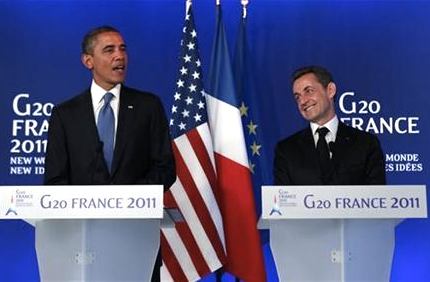
Italy is the next focus of worries, and with a significantly larger economy than either Greece, Ireland, Spain or Portugal, its sovereign debt problems—if they worsen—could deliver a fatal blow to the euro zone project, some think.
For now Italian Prime Minister Silvio Berlusconi has allowed the IMF to send inspectors to report on Italy’s progress in reducing its debt. Italy’s borrowing costs have risen and could worsen. In fact Italy’s debt is nearly €2 trillion, vastly more than the current reserves of the EU rescue fund, EFSF (at €440 billion). Half of this fund will go toward bailouts of Ireland, Portugal and Greece.
The Wall Street Journal quoted Geoffrey Yu, head of foreign-exchange strategy at UBS in London: “The meeting displayed a total failure of leadership on the part of the euro zone—they have no plan, and it was all plain to see for the rest of the world.”
The Journal has a chart that shows the different credit ratings of the European sovereign debt, according to country and rating agency. The Telegraph also has an in-depth look into the debt crisis across the “Old Continent.” The BBC has another valuable resource of background information, and talks about Europe’s “four dilemmas”.
You can find links on the G20 here, as well as the Final Declaration of the G20 Cannes Summit here, and the Cannes Action Plan for Growth and Jobs.
For now uncertainty remains until Europe shows more unity. President Obama has shown support and has encouraged the EU to resolve this crisis, but how much weight does he have? On that separate issue, the BBC has an article about American foreign standing under Obama.
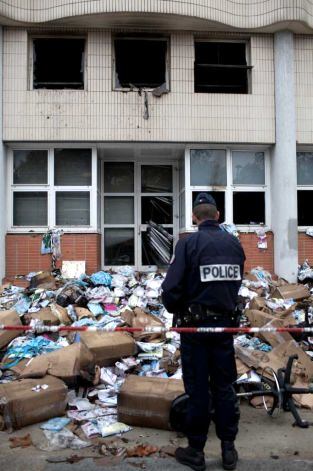
A positive point was when China “committed to rebalance demand toward domestic consumption, promote market-based interest rate reform, and move further toward capital account convertibility.”
The G20 was not the only group meeting, as the B20 (Business) of 500 business leaders of 20 nationalities came together to encourage European leaders to come together for the economy.
Offices of French satirical newspaper firebombed after issue mocks Muslim faith
In other news, Molotov cocktails were thrown into the Paris offices of French satirical weekly Charlie Hebdo last week in the early morning hours before an issue hit stands that portrayed the Prophet Muhammed on its cover in a negative manner. French politicians harshly condemned the attacks (luckily no one was killed) with Prime Minister François Fillon stating, “freedom of expression is an inalienable value.” Mohammed Moussaoui, leader of the French Council of the Muslim Faith, also condemned the attack, and stated his “profound attachment” to freedom of expression. But he also “strongly deplored the very caricatural tone” of the newspaper towards Islam.
Marine Le Pen in Washington, D.C.
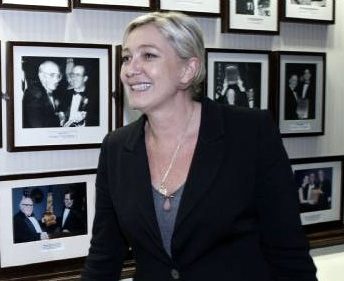
Extreme right French presidential candidate Marine Le Pen was in Washington, D.C. this past week to meet leaders in an effort to build international credibility. However, she mostly met with members of the press and some politicians and lobbyists. As Le Point reported above, she does not speak English so worked through an interpreter the whole time. She had lunch with Richard Hines, a lobbyist, and William Murray, the President of the Coalition for Religious Freedom (against Sharia Law). Perhaps the most notable person she spoke with was Ron Paul, though he was 50 minutes late for the last-minute appointment, which lasted 10 minutes. Le Pen also sat down with a Republican representative from Chicago and Tea Party Member, Joe Walsh. As the daily tells it, she fared worse than her father Jean-Marie Le Pen, who was able to eat at a dinner with President Ronald Reagan in 1987.
Stay tuned for more news!
PHOTO CREDITS: G20 Summit Cannes group portrait. ©Lionel Bonaventure, AFP-Getty Images; Presidents Obama and Sarkozy at G20 Summit. ©Reuters; Charlie Hebdo office after firebomb. ©Thibault Camus/AP; Marine Le Pen après une conférence au National Press Club à Washington, le 2 novembre 2011. ©
Michael Barrett is a Paris-based communications consultant, freelance translator and English teacher who also curates the American Expat in France blog. Please click on his name to read his profile and to view more of Michael’s stories published at BonjourParis.
Would you like to propose a story? Submit an article or story idea.
Subscribe for free and never miss a story. Search our library with 7,200+ stories and 50 original stories published monthly. BonjourParis has been a leading online France travel and French lifestyle site since 1995.
![]() Thank you for using our direct link to Amazon.com every time you shop the world’s largest online retailer.
Thank you for using our direct link to Amazon.com every time you shop the world’s largest online retailer.
View our Top 100 Bestselling Amazon.com Items. (Wait for Amazon.com widget to load)
Want more? View our recommended France-themed books & items. Most recent listings at last pages.


